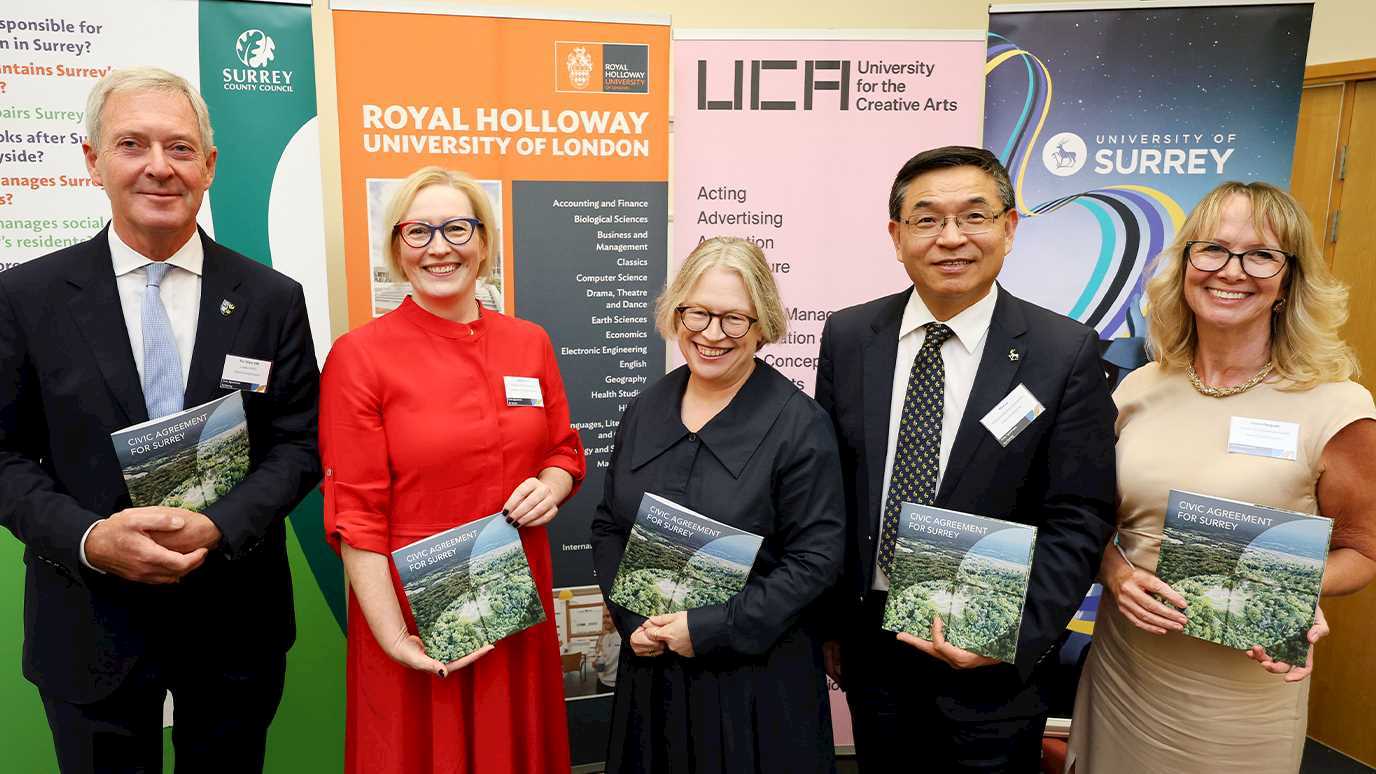Royal Holloway has joined six other leading universities in sending an open letter to the Government urging more support for students both now and when they graduate due to the impact of Covid-19.
The open letter to the Prime Minister, Education Secretary and Chancellor of the Exchequer says Covid-19 means students are facing increasing hardship and will also need additional support in the future.
Professor Paul Layzell, Principal of Royal Holloway, said: “The impact of the pandemic on university students has been significant and we believe the Government has a responsibility to support them now and also when they graduate. The Bank of England base rate is currently 0.1% with RPI at 1.4% and CPI at 1.3% but the headline student loans interest rate is currently 5.6%. It would be a significant gesture if the Government were to apply an interest waiver on student loans to help graduates get off to a better start in the early stages of their career.
“The pandemic has placed unprecedented pressures on our students. We are less than halfway through the academic year and, at Royal Holloway, we have already provided £80,000 in study support grants to our students and in addition, 33 laptops through our digital disadvantage scheme.
“We hope the Government will act on the measures proposed in our open letter and increase its support for this generation of students.”
The letter has been signed by:
- Professor Anthony Forster, Vice-Chancellor, University of Essex
- Professor Frances Corner OBE, Warden, Goldsmiths, University of London
- Professor Karen Cox, Vice-Chancellor and President, University of Kent
- Professor Paul Layzell, Principal, Royal Holloway, University of London
- Professor David Richardson, Vice-Chancellor University of East Anglia
- Professor Adam Tickell, Vice-Chancellor and President, University of Sussex
- Professor Robert Van de Noort, Vice-Chancellor, University of Reading
The full text of the open letter reads:
Dear Prime Minister, Chancellor and Minister,
Students are studying in the context of a deadly global pandemic. Our universities have sought every opportunity to support our students – delivering high quality, online learning, supporting student welfare and addressing digital deficits. This has stretched financial resources and, even with reprioritisation of spending, will lead to financial deficits. We believe the Government must now play its part in championing fairness between the generations.
The opportunity and wealth gap between the young and old is already unacceptably large – and existing challenges are being amplified by the impact of the pandemic on students and their life chances. We ask the Government to increase its support for this generation of students. With 15 months from initial lockdown through to the end of this academic year, the reduction of an equivalent 15 month interest waiver on student loans, would be seen as a significant gesture and help graduates get off to a better start in the early stages of their careers.
The pandemic has placed unprecedented pressures on our students. In some of our universities, demands for hardship funds have increased by over 100%. As a result of the pandemic, students also face extraordinary mental health challenges and 18% of students lack access to a computer, laptop or tablet. Additional government support is an urgent priority.
For a second year in a row, all of our students will be entering into a desperately challenging job market. Our universities want to play a full part in supporting graduates in their transition to work or further study. Government flexibility in the use of the Apprenticeship Levy and funding for bite-size qualifications, aligned to urgent priorities for higher-level skills and flexibility in using other sources of government funding, would make an immediate difference. These measures would also accelerate the positive contribution that universities can make in supporting the national recovery.
In combination, we believe these initiatives would ensure the Government can play its full part in ensuring fairness between generations – and that university students are not forgotten or left behind.
























